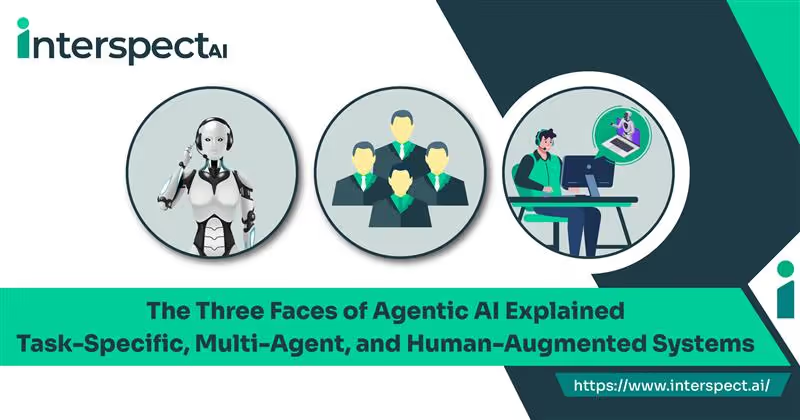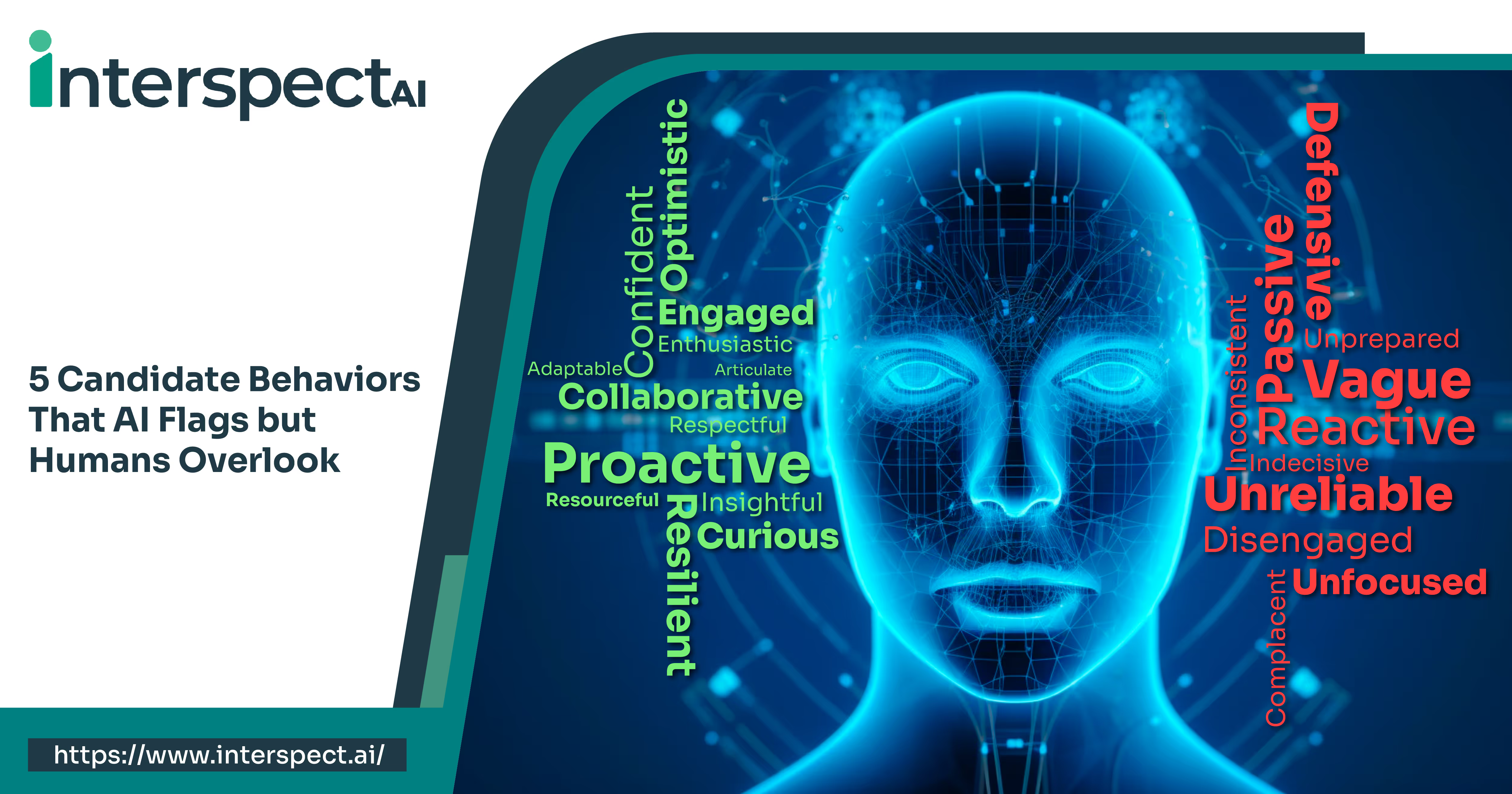Agentic AI in Hiring - Capabilities and the Evolution of Talent Assessment



Hiring teams often face numerous challenges in every step of finding and evaluating talent.
Recruiters often face the daunting task of reviewing hundreds of applications efficiently while ensuring fairness. Traditional manual processes, though widely used, can be time-intensive and resource-heavy, risking delays that might allow top talent to slip through the cracks.
Even the most well-intentioned human-led evaluations can be influenced by unintentional biases. For instance, studies highlight how factors like a candidate’s name or gender can sway outcomes, underscoring the need for standardized, equitable screening methods.
These challenges, however, aren’t insurmountable - they’re an opportunity for improvement.
And improvement comes in the form of Agentic AI.
In hiring, an AI Agent can conduct interviews and evaluations much like a human recruiter - asking questions, analyzing responses, and scoring candidates - but with greater consistency, scale, and speed, making it a digital recruitment partner.
In this two-part blog series, we look at how Agentic AI can transform the hiring industry. In Part 1, we take a look at how Agentic AI works and the challenges in the current hiring practices.
And in Part 2, we explore how Agentic AI can address those challenges, as well as the concerns with using this system, and what the future looks like for AI-powered talent assessment.
How does Agentic AI in hiring work?
First, let’s take a proper look at what Agentic AI is.
What is Agentic AI?
Agentic AI is a term for AI systems capable of acting autonomously to reach goals, learning and adapting with minimal human intervention.
Unlike traditional AI models that follow fixed rules or scripts, AI agents can perceive its environment, make decisions, and improve through experience.
In recruitment, an AI agent isn’t just a chatbot answering queries; it’s an intelligent system that can manage complex tasks end-to-end – from screening resumes to conducting interviews – while continuously learning to improve at those tasks.
In short, while traditional AI might automate individual steps (like keyword matching on resumes), AI agents can orchestrate the entire hiring workflow with a degree of independence and adaptability.
What are the key capabilities of Agentic AI Interviews?
Agentic AI has several capabilities that make it extremely suitable for interviews and talent assessment.
Behavioral and sentiment analysis
On top of understanding what is said, AI agents can also analyze how something is said. The tone of voice, speech rate, facial expressions, and word choice can all be assessed (within ethical bounds) to gauge confidence, honesty, and other soft skills. For example, AI video interview platforms can analyze communication skills and problem-solving ability from a candidate’s recorded responses.
These systems can also evaluate traits like enthusiasm or cultural fit by examining language patterns and non-verbal cues in a standardized way.
Adaptive interview flows
AI agents are dynamic and can adjust their questions based on a candidate’s previous answers, much like a skilled human interviewer would. If a candidate shows strength or weakness in a particular skill area, the agent might delve deeper into that topic or pivot to another subject, creating a personalized interview experience. This adaptiveness ensures a fuller picture of each candidate’s abilities rather than a rigid script that might be easy for some and hard for others.
Autonomous decision-making
Perhaps most importantly, AI agents can make recommendations by collating all the data from an interview. They can score candidates against defined criteria and rank or shortlist the top performers for human recruiters to review. Because an AI agent operates with set objectives and learned knowledge, it can do this with remarkable consistency across all candidates.
What are the limitations of traditional hiring & talent assessment?
Even as technology transforms hiring, it’s important to acknowledge why change is needed. While proven effective over decades, traditional hiring processes have several limitations that agentic AI aims to address.
Bias & subjectivity
Striving for fairness in hiring is a priority for recruiters, yet human-led processes can sometimes face challenges in maintaining complete objectivity. Even subtle factors - like a candidate’s background or personal interests - might unintentionally influence evaluations, despite a recruiter’s best efforts. Research reveals how seemingly minor details in resumes or interviews can impact diversity efforts, leading strong candidates to be overlooked. These inconsistencies highlight the importance of standardized, equitable approaches to ensure every candidate is assessed purely on merit.
Time-consuming & costly
Hiring by purely manual means is labor-intensive. Reviewing hundreds of resumes and conducting numerous interviews requires significant time from HR staff. It’s not uncommon for recruiters to feel overwhelmed by information overload when scrutinizing countless applications. This prolonged effort translates to higher costs per hire, and extended vacancies can hurt productivity. Moreover, human fatigue can set in – after hours of resume screening, even a diligent recruiter might miss a great candidate due to a simple oversight.
Scalability issues
When a company needs to hire at scale or rapidly grow, traditional methods often struggle to keep up. Coordinating interviews among multiple candidates and interviewers becomes a scheduling nightmare, and it is difficult to maintain consistency across those many interviews. An extensive candidate pool exacerbates the challenge: Sourcing the right talent from thousands of applicants can be like finding a needle in a haystack and can overwhelm hiring teams.
Manual processes don’t scale easily – under high volume, they can slow down or break.
Inconsistent evaluations
Every human interviewer has a different style and perspective. Even when using the same criteria, one interviewer might give a thumbs-up to a candidate that another might pass on. Factors such as mood, timing, or different questioning techniques can also lead to inconsistent evaluations of candidates.
Ensuring each candidate is assessed equally is hard without a highly structured interview format. This inconsistency can result in hiring outcomes that depend on which interviewer a candidate meets, rather than a fair, standardized assessment of their qualifications.
Traditional hiring certainly has its strengths - the human touch, intuition, and deep interpersonal assessment - but these challenges can hamper an organization’s ability to hire effectively and fairly.
Recognizing these pain points sets the stage for understanding how agentic AI interviews can offer improvements.
The need for change
Traditional methods have long been the cornerstone of hiring, offering invaluable human connection and intuition. However, as organizations grow and hiring demands evolve, Agentic AI steps in - not as a replacement, but as a natural progression to enhance and complement the strengths of human-led recruitment.
In Part Two of this blog post we will dive deeper not only into how Agentic AI can help address these challenges for a deep dive into the solutions, but also its potential applications beyond recruitment, the challenges associated with using AI Agents, and what the future holds for AI-powered assessments.
Subscribe to The InterspectAI Blog


%201.svg)






